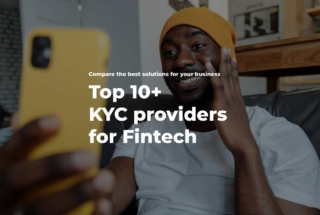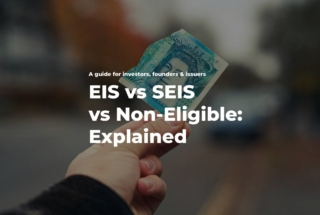The Power of Tokenization: Transforming Traditional Crowdfunding Platforms
No time to read? Let AI give you a quick summary of this article.
Crowdfunding has come a long way since its early roots, where raising funds meant passing a hat around at the local pub.
Today, we have online platforms where people can back different projects, from a lifesaving medical device to a potato salad recipe1 (yes, that happened). It has been one of the most used options for businesses in unlocking new funding opportunities, and for people to also support innovative startups and projects.
However, as we move more into a digitalized interface, it is important to upscale crowdfunding platforms with the latest technologies, making them more accessible for a broader audience – despite the location of the project and the investors-, and trustworthy for an easy, user-friendly experience.
Let´s explore how tokenization is helping crowdfunding platforms to reduce costs and make their operations more efficient.
What you will learn in this post:
What is tokenization in crowdfunding?
Tokenization is a technology that is changing the way crowdfunding works by digitizing assets and automating processes. In simple terms, it means representing an investor’s ownership in a project, such as corporate bonds or shares of a company through digital tokens on a blockchain.
For each of the projects listed on a crowdfunding platform, tokens are minted on the blockchain representing the investment. In essence, each listed asset is tokenized, providing investors with a digital representation that corresponds to their ownership in the underlying project or company.
This process essentially transforms how companies can raise funds, transforming the asset into secure and tradable digital representations:
- A crowdfunding platform lists a project and opens it to the crowd for investment. Investors can typically participate using equity2 or debt instruments, such as bonds.
- For each listed project, tokens are created (or “minted”) on the blockchain. These tokens represent the investor’s ownership in the underlying project or company.
- When an investor decides to participate in a project and completes the payment, they receive a proportionate amount of tokens corresponding to their investment.
- Tokens are stored in digital wallets. As part of the subscription process, the platform can create wallets for investors. Alternatively, investors can specify their existing wallets if they have one.
Despite involving blockchain technology, the process is straightforward and user-friendly. Investors don’t need prior blockchain knowledge or direct interaction with blockchain systems. Everything is managed seamlessly via the crowdfunding platform’s dashboard.
In essence, tokenization provides investors with secure, digital representations of their investments. This approach fundamentally reshapes how companies raise funds by converting traditional assets into secure, tradable digital representations.
Benefits of tokenization in crowdfunding
Let’s talk about the major benefits of tokenization in crowdfunding and why you should consider incorporating the new technology into your business model.
Breaking barriers for internationalization
Tokenization complements regulations that harmonized crowdfunding practices across borders (e.g. ECSP in Europe3), making cross-border investments technically possible. Investors can now receive their tokenized securities directly in their digital wallets, without any restriction on their geographic location, and avoiding costly intermediary parties such as custodian banks. This process empowers platforms and promoters to scale internationally, reaching a diverse investor base and unlocking new funding opportunities.
Provide transparency
The transparent nature of blockchain technology provides significant advantages for investors on crowdfunding platforms. Every transaction is recorded on the blockchain – an immutable ledger that can be verified by all parties – ensuring that data cannot be altered or deleted once it has been added to the blockchain. This transparency allows investors to track their holdings, view the history of their transactions, and monitor the flow of funds in real-time.
Beyond transactions, blockchain can also store critical information related to the projects being funded. This is particularly valuable for platforms focused on sectors like energy transition, sustainability, or social impact projects.
For instance, project milestones and updates can be embedded directly onto the blockchain, providing investors with real-time insights into the progress of renewable energy installations, green infrastructure, or other development efforts.
Sustainability metrics, such as CO2 reductions or energy output data, can be recorded and verified, adding another layer of trust for environmentally conscious investors. Certifications and compliance documents can also be securely stored, ensuring transparency and regulatory adherence.
Increased investment access
Although crowdfunding platforms already offer small ticket sizes, enabling broader participation, the process often involves significant manual steps and high administrative costs. These include managing investor records and processing numerous small transactions, which can be resource-intensive. Tokenization addresses these challenges by fractionalizing the investment but still making it cost-effective to manage a large number of smaller investors. Smart contracts automate tasks such as dividend distribution, and other manual interventions. This not only lowers operational costs but also simplifies the investment process for platforms and investors, enabling true scalability.
Appealing to the new generation of investors
Tech-savvy and crypto-native investors are increasingly drawn to innovative financial solutions. This demographic, often made up of younger and more digitally aware people, actively seeks out investments that align with their interest in new technologies and financial opportunities.
Trading and liquidity
In the last months, emerging exchanges are working towards listing tokenized securities issued by crowdfunding platforms. This development addresses the long-anticipated need for liquidity in the market, offering investors the ability to trade their tokenized assets on secondary markets.
From a technological perspective, this is entirely feasible and is further supported by the European Parliament. Legislative frameworks, such as the DLT Pilot Regime4, actively enable and encourage the creation of secondary market platforms for tokenized assets.
The introduction of secondary trading provides significant benefits for the investors, since knowing they can exit their investment through a liquid secondary market makes projects more appealing, increasing their confidence and participation, but also adds value for the crowdfunding platform, elevating the entire platform by attracting a broader range of investors seeking flexibility in their investments.
Tokenization is opening the way for a more transparent, and accessible crowdfunding ecosystem that will benefit platforms, project promoters and investors, and opening an opportunity for platforms to streamline their operations, addressing challenges such as internationalization, investor engagement, and process automation. And in an increasingly competitive market, adopting new technologies and establishing an advantage over other players will be essential for platforms’ sustained growth.
Bridging blockchain and crowdfunding with NYALA and LenderKit
NYALA5 and LenderKit are working together to upscale the crowdfunding industry by integrating blockchain technology to the crowdfunding solutions.

Through this collaboration, NYALA’s tokenization engine will become a module that can be included in LenderKit’s whitelabel solution, enabling new platforms to unlock the benefits of tokenization, while ensuring regulatory compliance under European frameworks like Germany’s Electronic Securities Act6, “eWpG”.
By combining their strengths, Lenderkit will deliver crowdfunding software that operates state-of-the-art tokenization technology. This partnership highlights the transformative potential of blockchain in crowdfunding, offering a trustworthy, efficient, and borderless system that empowers platforms, project promoters, and investors alike.




